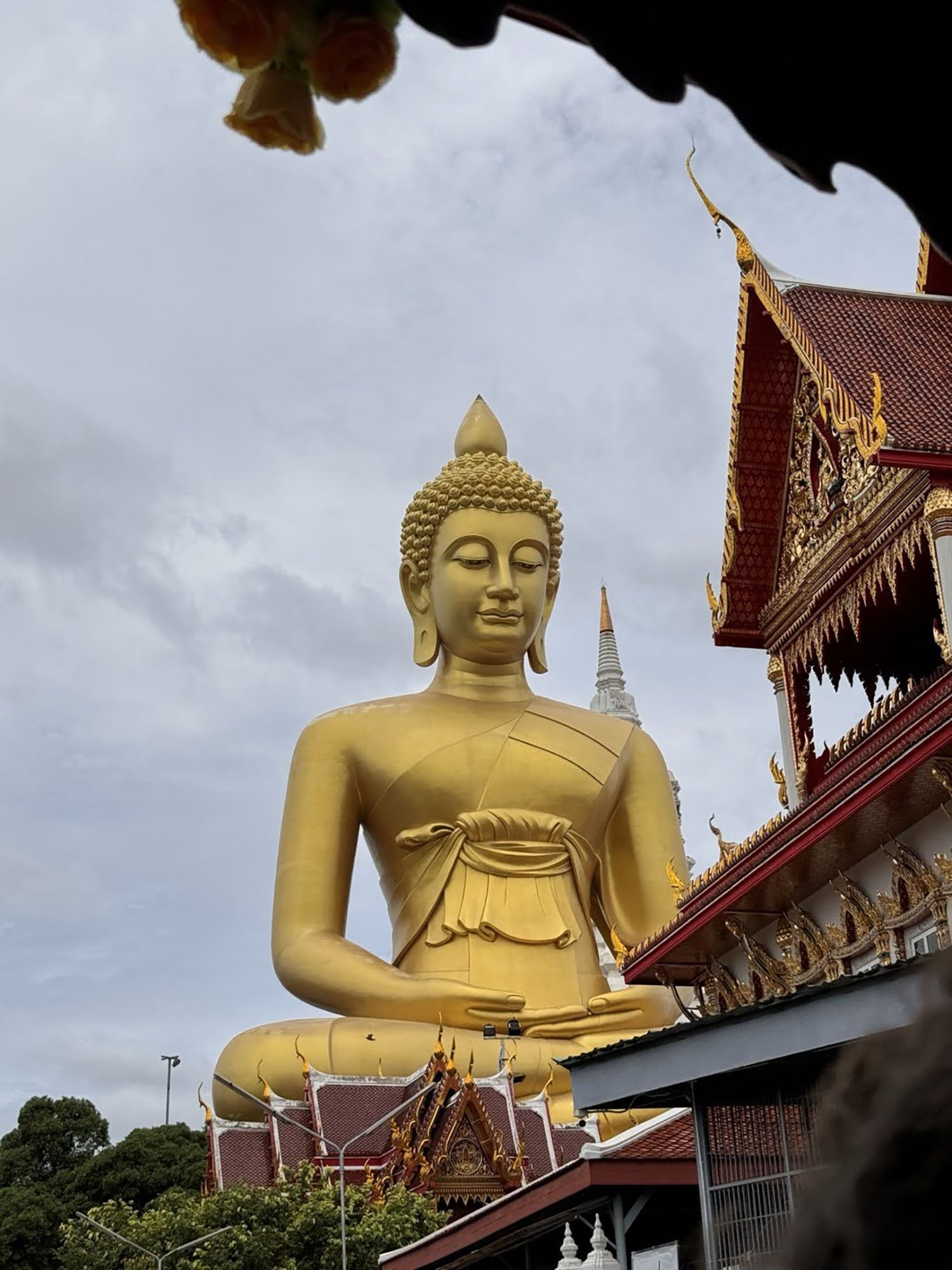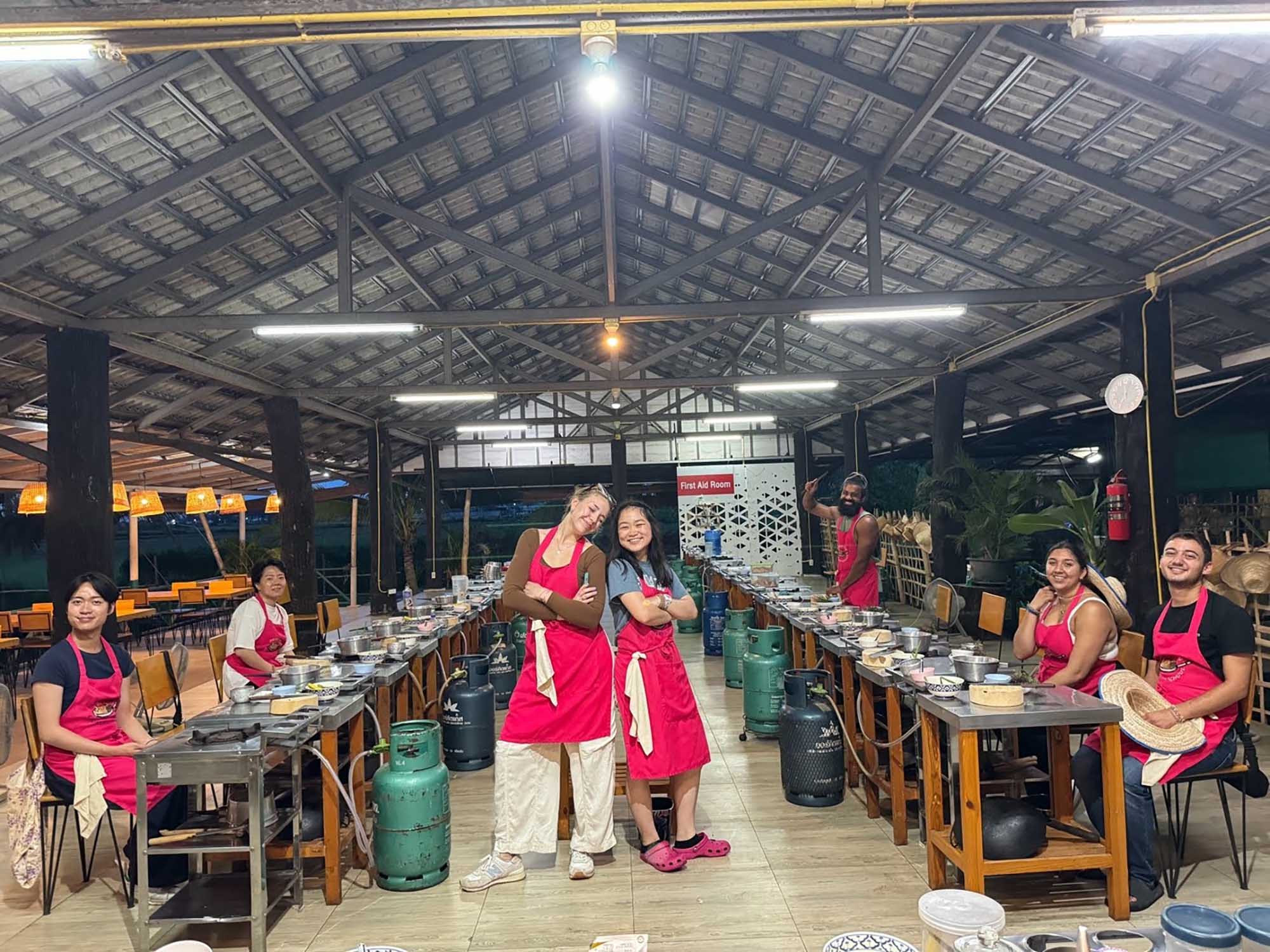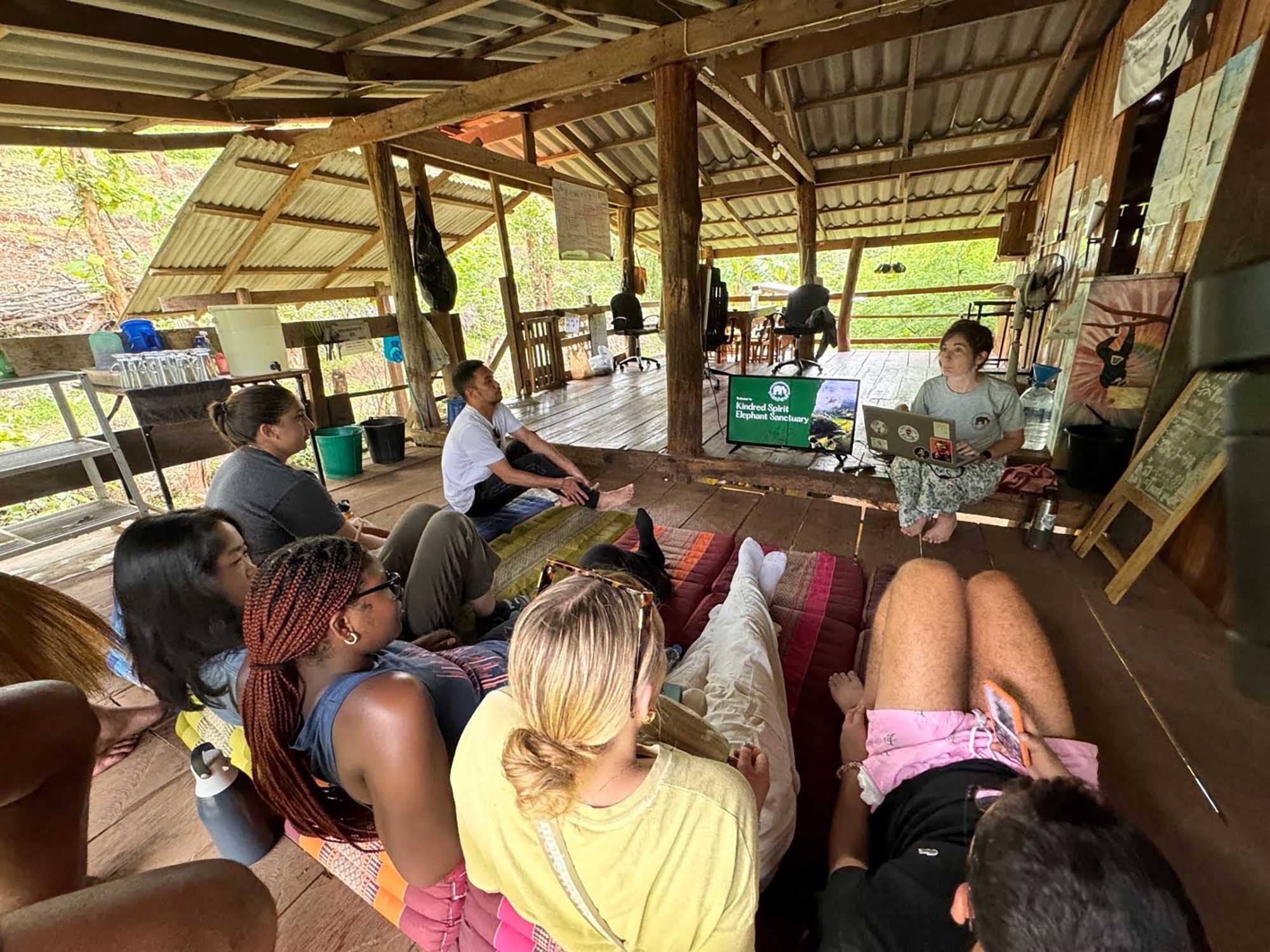Adventure in Thailand: SHA Undergrads Study Ecotourism

The SHA students, on a two-week service learning trip, at the centuries-old Buddhist temple and historic landmark Wat Si Sawai of Sukhothai, Thailand.
Adventure in Thailand: SHA Undergrads Study Ecotourism
Aim of students’ recent service-learning trip was to help understand the complexities of global tourism, including its environmental and social repercussions
Thailand attracts millions of tourists every year, many traveling there to see Asian elephants. The country is home to 15 percent of the 52,000 Asian elephants currently in the world.

One problem facing this vacation destination is protecting these gentle giants, which are classified as an endangered species. Animal rights activists warn against the unethical activities tourists tend to flock to, such as riding the elephants, which can put pressure on their bodies and deteriorate the tissue and bones, causing spinal damage.
This lesson was imparted to a group of eight School of Hospitality Administration students who went on a two-week service learning trip to Thailand earlier this summer. The trip—a combination of community service and cultural immersion—had students examining tourism’s drawbacks and opportunities for community-led businesses that still allow for environmental sustainability, social justice, and profits. On the trip, SHA students experienced an elephant park sanctuary, stayed with local families in a tribal village, and explored the country’s bustling cities, such as Bangkok, Thailand’s capital. They visited historic sites like Sukhothai, a World Heritage Site, among other spots.
Leo Finkelstein (SHA’25) says the trip taught him so much that’s “incomparable to something that is taught in the classroom.” The experience Finkelstein found especially memorable was a three-night homestay with the Akha Tribe in a remote mountain village near Chiang Rai, where students helped build roads, mix cement, and pave paths.

Organizers say the trip was a chance for the students to learn about ecotourism by traveling to areas that are trying to conserve the environment and sustain the well-being of the local people. It also was an opportunity for the students to engage in service-learning, which Anna Monahan, SHA assistant dean of finance and administration, says is the best way to be immersed in a culture and truly experience the place you are traveling to.

Yunmei (Mabel) Bai, an SHA assistant professor of revenue management, accompanied the students. She says the experience reinforced sustainability principles and empathy, showcasing how tourism can positively impact wildlife conservation. “It aligned perfectly with SHA’s commitment to promoting responsible tourism,” Bai says, and the elephant sanctuary was specifically chosen because it emphasizes ethical practices, such as not riding elephants and ensuring their well-being.
Bai says that for students new to the idea of service-learning there were some challenges, such as the high heat and the physicality of farming and hiking to some locations. But the excursions and activities helped push students out of their comfort zones and enhance their understanding of responsible tourism. “This transformative journey not only enriched [their] knowledge,” she says, “but also developed [their] ability to engage in sustainable practices, which is invaluable for future careers in hospitality.”


The trip began in Bangkok, then came an exploration of community tourism in the city of Chiang Rai, followed by cultural and animal tourism in Chiang Mai, the largest city in northern Thailand, and visiting temples in the historic town of Sukhothai. A World Heritage Site, Sukhothai was the capital of the first Kingdom of Siam in the 13th and 14th centuries.

The most memorable moment for Bai was a Thai cooking course in Chiang Mai, where the group learned to cook six signature Thai dishes, such as papaya salad, tom yum soup, pad thai, and mango with rainbow sticky rice. The course also included shopping for ingredients at a local market, she says.
Monahan says that SHA is already thinking about next year’s service-learning trip—perhaps to a location in India or Tanzania—although it may be over winter break to avoid the high heat.
Asked about her experiences on the trip, Mira Ramnarace (SHA’26) recalls hiking up grueling hills to see the elephants since they were not in an enclosure. “It had just rained the night before, so it was muddy,” she says. “It was crazy, but we got to go see a bunch of elephants in their habitat up close, which is awesome.”
Her overall grade for the trip? “Challenging, but very rewarding,” Ramnarace says.
Comments & Discussion
Boston University moderates comments to facilitate an informed, substantive, civil conversation. Abusive, profane, self-promotional, misleading, incoherent or off-topic comments will be rejected. Moderators are staffed during regular business hours (EST) and can only accept comments written in English. Statistics or facts must include a citation or a link to the citation.